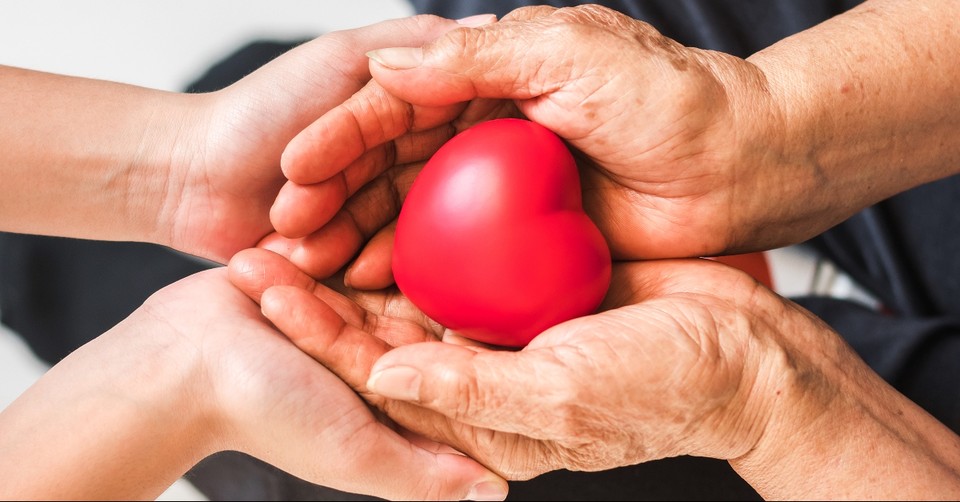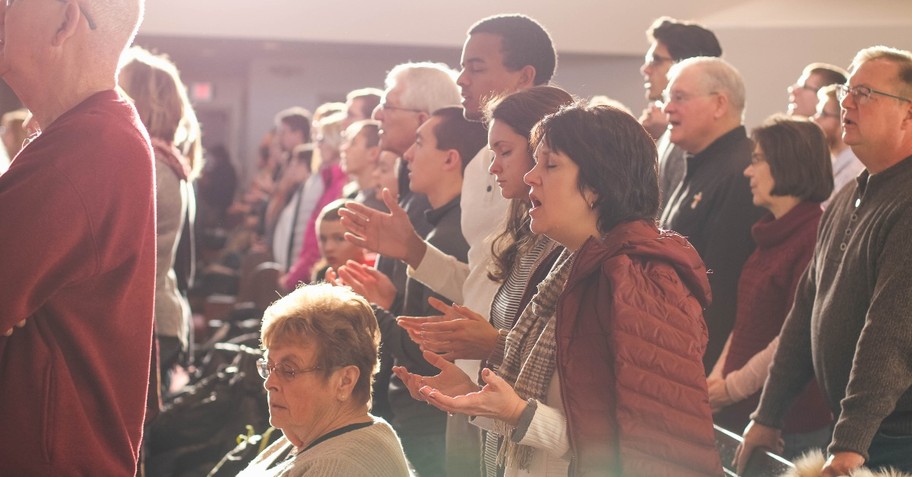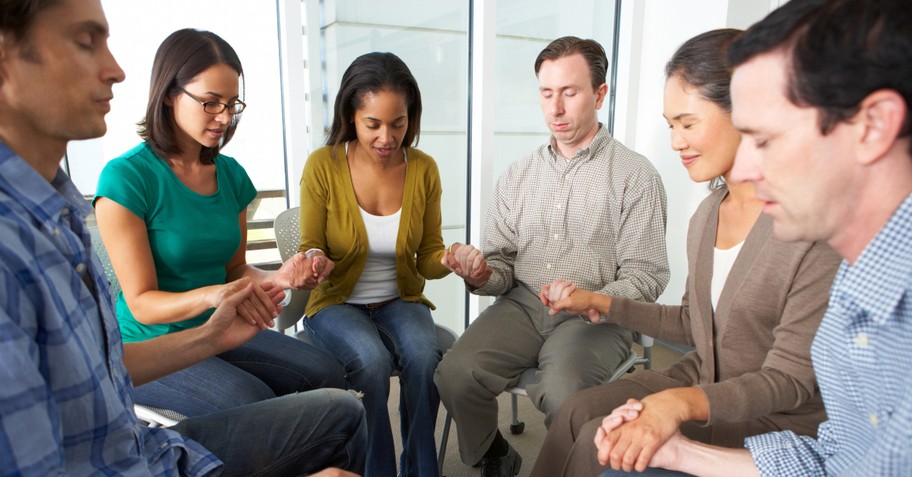How to Shift the Focus from “Me” to “We” with Your Spiritual Gifts

If you were to take 2 minutes to evaluate what you’re good at, what you say?
Is it leadership? Teaching? Art and music? Drawing a crowd? Encouragement? Sarcasm? Procrastination? I’m a bit of a pro at sarcasm myself.
Let me ask a different question: have you ever found yourself doing something — whether at home, in your job, volunteering or somewhere else — where you just naturally excel? Maybe you even think to yourself: “I enjoy this and I’m good at it. It’s like I was made to do this.”
If you’ve ever felt this way, you’re probably operating within your Spiritual gifts.
When a person becomes a Christian, dedicating their life to Christ from that moment forward, God’s Spirit comes to make His home within them (John 14:23, John 14:17). One of the purposes of the Spirit is to glorify Christ through us, and He does that by giving us spiritual gifts so that we can bring glory to Christ in our lives.
But since the Spirit is not only in us, but in the lives of other Christ-followers, these gifts aren’t to be used for us personally, but for the glory of God and the benefit of the church collectively. With that said here’s how you (and we) can shift our focus from “me” to “we” through our spiritual gifts.
Photo Credit: ©iStock/Getty Images Plus/Chinnapong
3 Realizations about Spiritual Gifts
Here’s a simple definition of how to think about Spiritual gifts:
Spiritual Gift - An ability given by God, used for the glory of God and for the growth of the church.
Notice there are three parts here: it’s given, it’s to be used for the glory of God, and for the growth of the church. Note: Some of the content below is based on a book I wrote on the Holy Spirit entitled “Wind & Fire.” If you’re interested, you can get a copy of this book right here from amazon.
1. First, these abilities are given by God.
We can’t obtain them ourselves, it’s wholly at God’s discretion. We can always ask God in prayer to give us additional or specific gifts, but it’s up to Him to say yes or no.
2. Second, they’re to be used for His glory.
Our gifts are for Him. They are not for our personal benefit or public acclaim. They are to showcase what God can do through us, but it is only through Him we can have these gifts in the first place. They’re to glorify God to others through us.
3. Lastly, they are for the growth of the church.
Our gifts are primarily for the Church. While many like evangelism, teaching, mercy, and others can be directed or even for non-believers, they are primarily to build up and equip the church. For a full list, see the scriptures: 1 Cor 12:4-11, 12:28, Romans 12:6-8
For the purpose of the rest of this article, I’d like to focus on the third one “the growth of the church.” Spiritual gifts help us think about “we” over “me."

One Body, Many Members
There is one overarching expert when it comes to Spiritual gifts: The Apostle Paul. In three different places, He gives us a list of some spiritual gifts, the offices (often known as the five-fold ministry of the church), and most importantly, what the gifts are for. Let’s look at what he says about the spiritual gifts and make a few observations along way:
Romans 12:3-8 For by the grace given me I say to every one of you: Do not think of yourself more highly than you ought, but rather think of yourself with sober judgment, in accordance with the faith God has distributed to each of you. For just as each of us has one body with many members, and these members do not all have the same function, so in Christ we, though many, form one body, and each member belongs to all the others.
First, Paul implores us to think collectively before individually. By ourselves, we’re not that great, but together we form the “body” of Christ which honors God. We don’t look the same, think the same, or behave the same — but we all belong to one another. Next, he says:
We have different gifts, according to the grace given to each of us. If your gift is prophesying, then prophesy in accordance with your faith; if it is serving, then serve; if it is teaching, then teach; if it is to encourage, then give encouragement; if it is giving, then give generously; if it is to lead, do it diligently; if it is to show mercy, do it cheerfully.
Whatever your gift is, it’s no good unless it’s actually being used. Gifts are not given to us to be stored away until we take them out to use them at an opportune moment. We are to look for as many opportunities as possible to use our gifts, and cheerfully.
Elsewhere Paul says that there is organization and purpose behind the gifts:
So Christ himself gave the apostles, the prophets, the evangelists, the pastors and teachers, to equip his people for works of service, so that the body of Christ may be built up until we all reach unity in the faith and in the knowledge of the Son of God and become mature, attaining to the whole measure of the fullness of Christ. Ephesians 4:11-13
No matter what your role is, we are all supposed to build up the body of Christ. Some have been given special roles (and the weight and accountability that comes with them) to provide unique leadership, instruction, and service.
Photo Credit: Sarah Noltner/Unsplash
Spiritual Gifts Do Not Measure Importance
It’s important to note at this point that even though some people have been given unique roles by the Spirit, they aren't to be treated with some sort of special reverence. Instead, I like to think of them this way:
Spiritual gifts and offices are not a way of measuring importance, they’re God’s way of directing service.
Everyone is to serve in their office, or with their gifts, or both, with the attitude of serving one another with the gifts they’ve been given to the glory of God for the growth of the church.
And then in one more place, Paul lays out how the spiritual gifts actually should and do bring the church together. It’s Paul’s insistence that the Church must and should be united above all else by the power of the Spirit through the spiritual gifts:
Just as a body, though one, has many parts, but all its many parts form one body, so it is with Christ. For we were all baptized by one Spirit so as to form one body—whether Jews or Gentiles, slave or free—and we were all given the one Spirit to drink. Even so the body is not made up of one part but of many. But God has put the body together, giving greater honor to the parts that lacked it, so that there should be no division in the body, but that its parts should have equal concern for each other. If one part suffers, every part suffers with it; if one part is honored, every part rejoices with it. 1 Corinthians 12:12-26

Unity Among Believers
One of the last things Jesus prayed for was unity for His believers, and ultimately for the Church. And that would only be possible by the Holy Spirit. If it was just up to us, we’d mess it up for sure (and have!). But by God’s Spirit, and the gifts He has given us, we can look around to others who have the abilities we lack and come together as the body of Christ to honor Him.
He’s a summary of what I think Paul is saying with all of these scriptures and spiritual gifts shift our focus from “me” to “we”:
Gifts of the Spirit help us seek unity. We can and are all united by the Spirit, even if we’re divided over different things, by geography, or secondary beliefs.
Gifts of the Spirit help us see diversity. All Christians don’t have the same gifts, and no Christian has all of the gifts. We have a diversity of gifts that help bring us together.
Gifts of the Spirit grow us in maturity. The Spiritual gifts of other people help us mature in faith. We’re not all teachings or have the gift of prayer or compassion. But collectively, we help and push each other towards growth by the Spirit.
Gifts of the Spirit help us understand necessity. We need each other, plain and simple. The gifts help us seek out others with the gifts we don’t have, like teaching, praying, helping, serving, and leading. We need them all, and each other!
Gifts of the Spirit reinforce community. People aren’t to be used for their gifts. We’re to do life together. We should desire to interact with, eat with, pray with, worship with, and do life with those of the body of Christ.
3 Questions to Consider
Spiritual gifts are an incredible way of realizing that God is working through us.
God could have chosen any way to bring glory to Himself in this world. He could have done it all Himself, but instead, He has chosen to use us to build up one another and to reach the lost through His Spirit. It is not only an incredible privilege, but also (hopefully) an incredible joy to serve Him with the gifts He has given us. It is pure genius by God to give only a few, or at the most, only some of the gifts to followers of Christ. It causes us to seek out one another, listen to the Spirit, and realize that not only as individuals, but more importantly, as the body of Christ, are glorifying God as we use our spiritual gifts.
To make it practical here are three questions to think about this week:
1. What spiritual gifts have you been given? If you don’t know, try taking a spiritual gift assessment class at your church or online.
2. How can you glorify God with your gifts? Look for opportunities to serve, don’t just let them come to you!
3. Who can you help grow with your gifts? Personalizing our gifts is a great way to use them. Rather than just thinking about their use, think about who can benefit from your gift.
Photo Credit: ©GettyImages/monkeybusinessimages
Originally published May 05, 2022.





